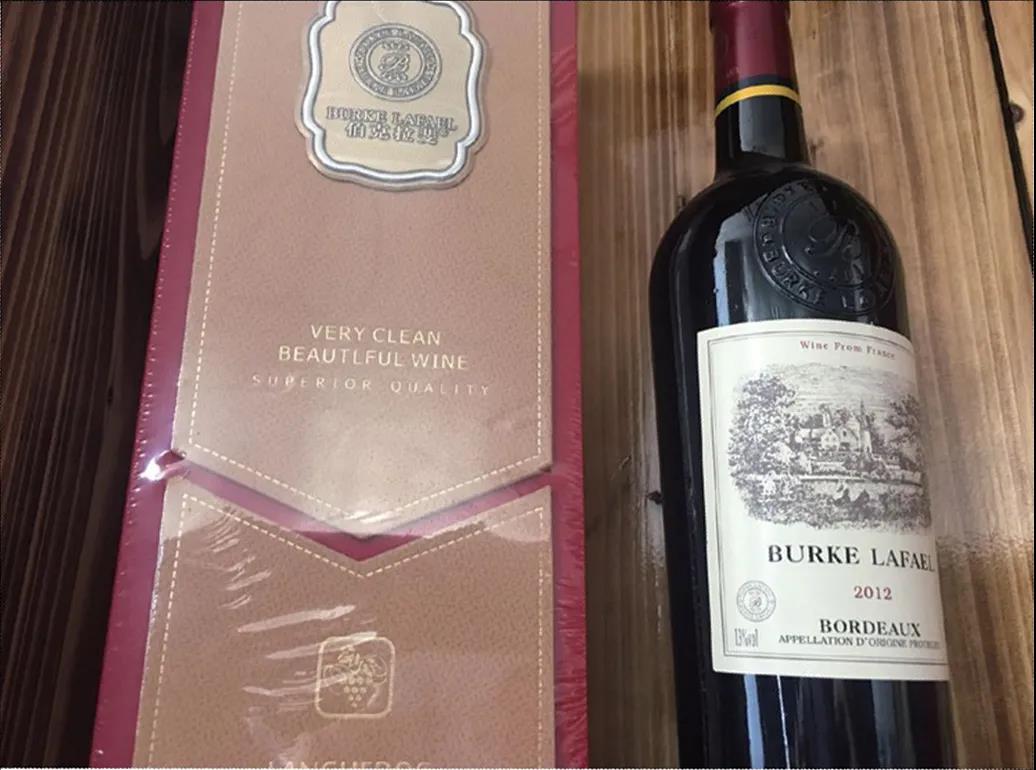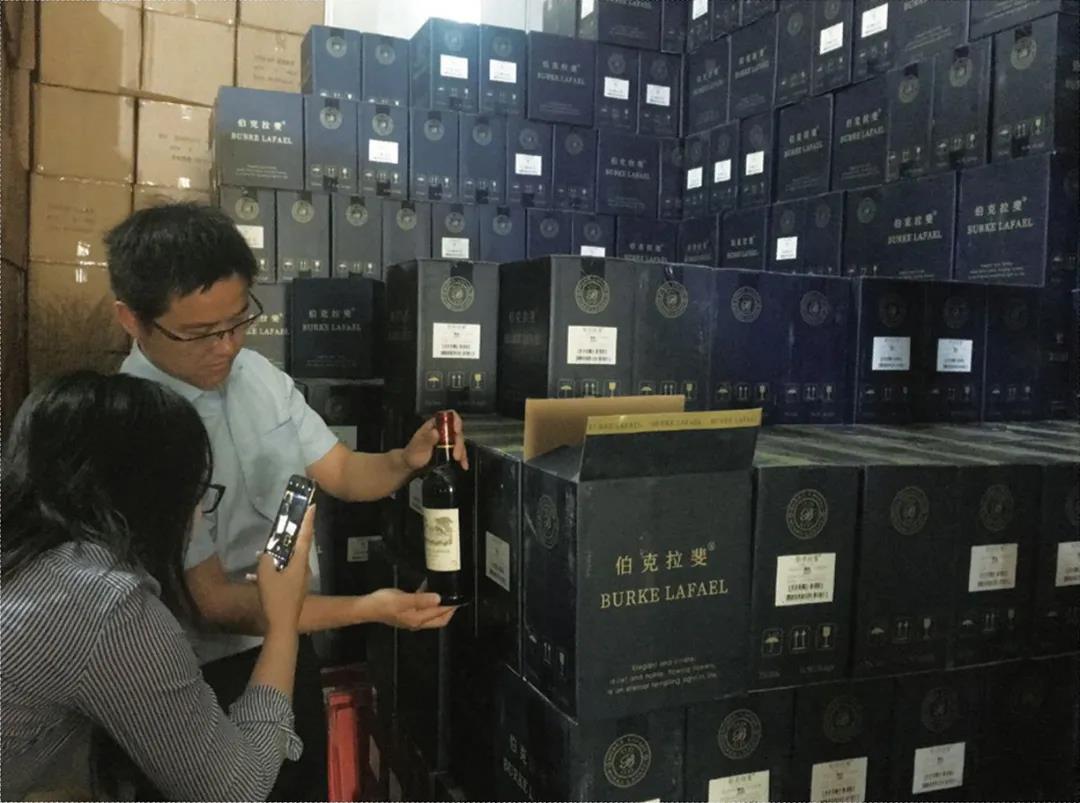The "Bordeaux" trademark No. 19564618 is a collective geographical indication (GI) trademark registered on wine products by Le Conseil Interprofessionnel du Vin de Bordeaux (CIVB) with the Trademark Office of the China National Intellectual Property Administration (CNIPA). The registration of the trademark will be valid until July 20, 2027.
.
The Shanghai Pudong New Area Intellectual Property Administration on April 25, 2019 discovered that Shanghai Feitong Trading Co., Ltd. (上海菲桐贸易有限公司) sold red wines bearing the “Burke Lafael” trademark, which infringed the "Bordeaux" trademark owned by the CIVB, at the China Food & Drinks Fair. Followup investigations found that Shanghai Feitong began to commission Yantai Aoweiyiman Wine Co., Ltd. (烟台奥威依曼酒业有限公司) to produce red wines and Shenzhen David Gospel Packaging Design & Printing Co., Ltd. (深圳市大卫福音包装设计印刷有限公司) to design and produce bottles, caps, labels, containers, and other packaging materials for the wines to counterfeit Bordeaux wines in July 2018 and the illegal sales of the infringing products amounted to 385,900 yuan ($61,000).

The Pudong New Area People’s Court of Shanghai on June 4, 2020 handed down a criminal ruling sentencing defendant Shanghai Feitong to 100,000 yuan ($16,000) in damages on the count of counterfeiting a registered trademark and its owner to 50,000 yuan ($7,800) in damages and 1 year and 6 months in prison, with a probation of 1 year and 6 months, on the same count. And the court also prohibited Shanghai Feitong’s owner from engaging in food production, sales, and related activities within a limited period of time.
Geographical indications (GIs) are precious resources and wealth of specific areas. The production and sale of commodities with counterfeit geographical indications seriously damage the reputation of geographical indications and infringe upon the legal rights and interests of producers and operators in specific regions. Some people argue that according to Article 213 of the Criminal Law, collective trademarks and certification trademarks are not subjects of trademark infringement. This case confirms a GI to be a subject of trademark infringement.
|
Copyright © 2003-2018 China Intellectual Property Magazine,All rights Reserved . www.chinaipmagazine.com 京ICP备09051062号 |
|
|


